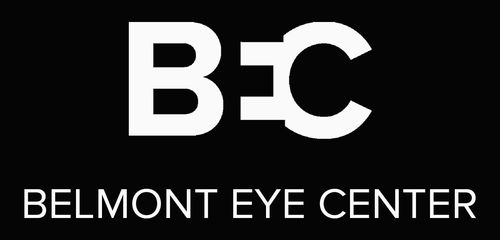If you’ve been struggling to read the fine print or need to hold your phone at arm’s length, you’re not alone—and you might be dealing with farsightedness, also known as hyperopia. One of the most common questions we hear at Belmont Eye Center is:
“Can LASIK fix farsightedness?”
The short answer: Yes—but it depends.
Here’s everything you need to know in 2025 about how LASIK can treat hyperopia, who qualifies, and what to expect.
What Is Farsightedness?
Farsightedness occurs when the eyeball is too short or the cornea has too little curvature, causing light to focus behind the retina rather than on it. This results in blurred near vision, while distance vision may remain clearer.
How LASIK Works to Treat Farsightedness
LASIK (Laser-Assisted In Situ Keratomileusis) reshapes the cornea so light focuses correctly on the retina. For patients with farsightedness, the laser steepens the central cornea, improving close-up vision.
While LASIK is commonly known for treating nearsightedness (myopia), advances in laser technology have made it increasingly effective for mild to moderate farsightedness, too.
Are You a Good Candidate for LASIK?
In 2025, LASIK continues to be one of the most precise and customizable procedures available—but it’s not right for everyone. You may be a good candidate if:
-
You’re over 18 and your prescription has been stable for at least a year
-
You have mild to moderate farsightedness, with or without astigmatism
-
Your corneas are thick enough for reshaping
-
You’re in overall good eye health (no severe dry eye, glaucoma, or cataracts)
The best way to find out? Book a comprehensive LASIK consultation with our team.
Is LASIK Permanent for Farsightedness?
Yes—but with a caveat. LASIK permanently changes the shape of your cornea, but your eyes can still change over time due to aging. Around your 40s and 50s, presbyopia (age-related loss of near vision) may affect your need for reading glasses—even if you’ve had LASIK.
However, many patients report years or even decades of improved vision post-surgery.
What Are the Alternatives to LASIK?
If you’re not a candidate for LASIK, don’t worry. There are other safe and effective options, including:
-
PRK (Photorefractive Keratectomy) – ideal for patients with thinner corneas
-
Refractive Lens Exchange (RLE) – a great option for those over 40
-
Implantable Collamer Lenses (ICLs) – often used for higher prescriptions
Let’s Talk About Your Vision
LASIK has helped millions of people see clearly without glasses or contacts—and it could be the solution for your farsightedness, too. If you’re ready to find out what’s possible, schedule a LASIK consultation at Belmont Eye Center today.
We’ll walk you through every step of the process and help you make the best choice for your vision and your lifestyle.
